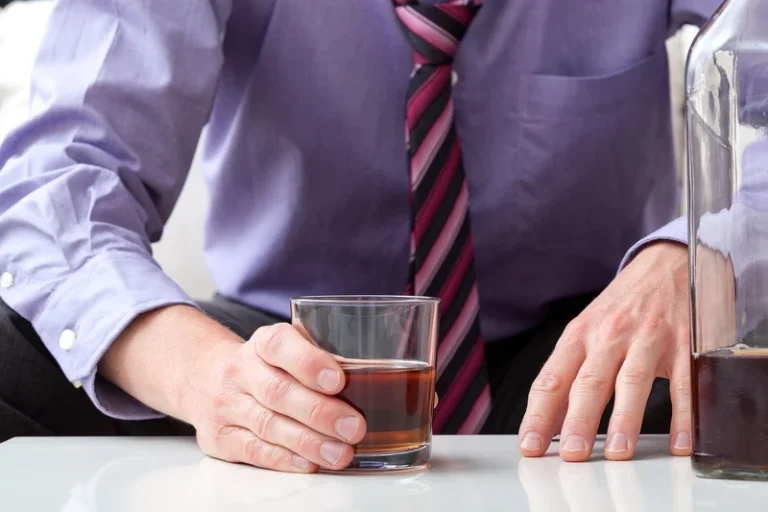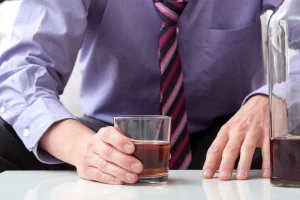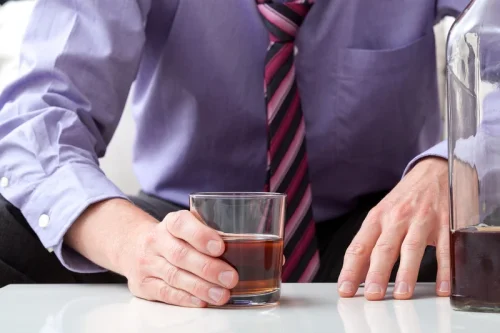Stages of Alcohol Detox: What Happens to Your Body
- Posted on 22 de março de 2022
- in Sober living
- by admin

Read on to find out more about what to expect during alcohol withdrawal. This article looks at when withdrawal begins, how long symptoms can last, when alcohol detox to contact a doctor, and more. Recovery from AUD is marked by stages of abstinence, withdrawal, repair, and growth. While the process may take several years, the outcome is a happier, healthier life where you have the freedom to fulfill your full potential. This stage typically starts 3–5 years after you’ve stopped drinking. People often need to address past trauma or familial issues during this time.
- If you decide to get treatment, your doctor can recommend the type of care that you need.
- If you have concerns about your alcohol intake, it is important to contact your doctor for advice.
- People who develop a life-threatening form of alcohol withdrawal called delirium tremens (DTs) may need admission to an intensive care unit due to a risk of death.
- At this point, the body may begin to start healing from the effects of heavy drinking, although some long-term effects of alcohol may persist for some time.
- Precisely how someone will withdraw from alcohol is impossible to predict, but addiction experts assess a variety of factors to gain insights.
Protracted Withdrawal After Alcohol Detox
As you have four weeks of better hydration, improved sleep and better overall health, it will noticeably affect your skin and hair. Your skin may appear fuller and healthier in consistency and quality. If your alcohol use distracted you from skin and hair hygiene, then the effects of sobriety can be even greater. After four weeks of hair growth without the effects of alcohol, your hair may appear fuller and https://ecosoberhouse.com/ more supple. They will become less intense, and symptoms will disappear one by one. Physical symptoms will be much better by a week after stopping for most people.
Health Products

At the peak of your withdrawal symptoms, you are more susceptible to relapsing. Marijuana dependence may cause withdrawal symptoms such as cravings, anxiety, difficulty sleeping, and irritability when you choose to detox. Of all your body’s organs, your liver takes the biggest hit when it comes to alcohol. A person should seek help if they notice that they or someone they love has symptoms of alcohol use disorder.

How Long Does It Take Your Liver to Detox From Alcohol?

Below are the most commonly abused substances alongside information about how long detoxing from each can take. Detoxing may last a couple of weeks to several months, depending on the factors mentioned above. This article explains the general time frames for detoxing from some of the most commonly misused drugs and what to expect during the process. “For patients who are left with cirrhosis after severe injury to the liver from alcohol, even one drink of alcohol is toxic to the liver,” cautions Dr. Lindenmeyer.
- Professional medical detox is the safest option when it comes to stopping drinking.
- At Discover Recovery, we work with a wide variety of health insurance providers so those in need can get access to the treatment they need.
- However, try not to have too many firm expectations, as symptoms can continue for multiple weeks in some people.
- Your healthcare provider will recommend and encourage treatment for alcohol use disorder.
Medications to Ease Withdrawal Symptoms
- Detoxing from alcohol is one of the most dangerous types of detoxes that your body can undergo.
- Another thing that will help your liver’s journey in recovery is good nutrition.
- Heavy alcohol users double their risk for hallucinations during withdrawal, being 2.4 times more likely than moderate or light alcohol users to experience them.
- People who develop DTs need specialized care, maybe even in an intensive care unit.
- The main ways to prevent alcohol withdrawal are to avoid alcohol altogether or to get professional help as soon as possible if you think you’re developing alcohol use disorder.
Attempting to detox from a substance dependence can be incredibly difficult to do on your own. Medical experts always advise that you do it in a medically-assisted facility. Depending on the extent of liver damage you have, you may need to completely abstain from alcohol in order to give your liver the best chance for recovery. Talk to a doctor about your personal history and what’s right for you. Multiple factors can affect how long it may take you to withdraw from alcohol. A doctor will consider all these factors when estimating how long-lasting and how severe your symptoms may be.


While alcohol detox takes between 7–10 days, alcohol withdrawal is different for every person who goes through it. For others, it can take months for the protracted withdrawal symptoms to diminish. According to The Recovery Village survey, 95% of respondents said withdrawal symptoms lasted for between two and eight days. Alcohol abuse also affects dopamine, a neurotransmitter linked to the body’s reward system. Dopamine also assists with the body’s sense of attention, motor coordination, cognition and mood.
Delirium tremens: 48–72 hours
- Alcohol can be detected in blood for up to 12 hours after the last drink.
- Inpatient alcohol detox is the most comprehensive type of medical detox available.
- With continued and excessive alcohol consumption, alcohol interferes with the brain’s natural functions, disrupting neurotransmitters that send messages to the CNS.
- If you’re not sure if your drinking crosses a certain line or not, try measuring your alcohol intake.
- They generally last two to three days, but they can extend past eight days depending on the severity of withdrawal effects.
Seeking help can be challenging for the person who is struggling with addiction. Loved ones and friends can help by letting the person know that they are not alone in their struggle. In addition to physical symptoms, a person will likely experience some psychological side effects, such as alcohol cravings or anxiety. When a person is ready to quit drinking, they should consider seeking professional help to reduce the intensity of the symptoms.







